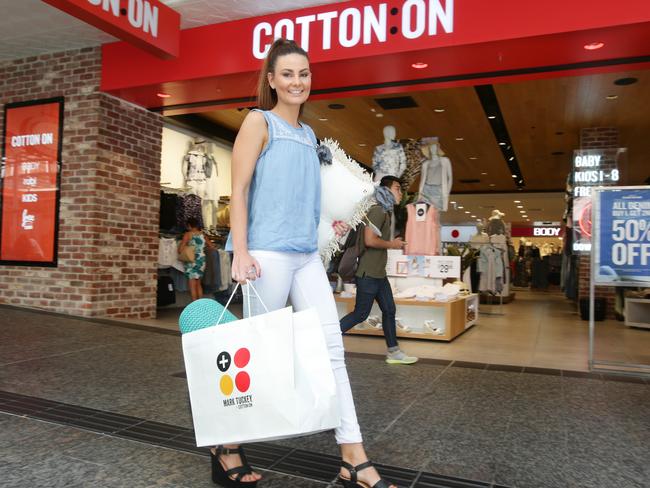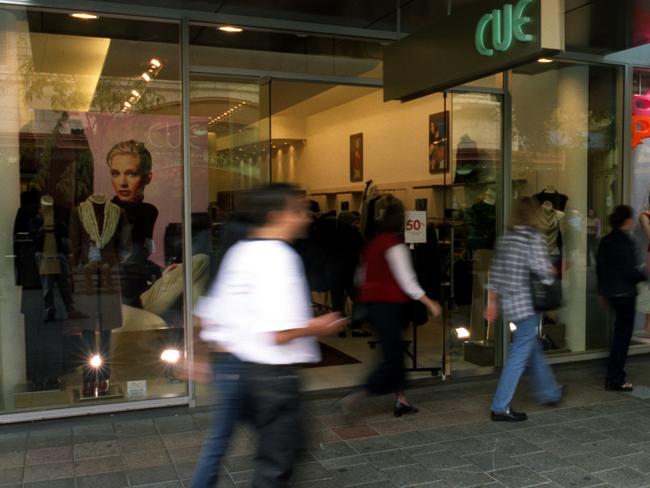The Bunnings effect: Secrets behind its success
AUSTRALIANS are getting sick of supermarket giants Coles and Woolies. To fix that, they need to learn from Bunnings’ example.
BUNNINGS has nailed the hardware game.
Not only has the retail juggernaut won the marketing race but it has secured its place as one of the nation’s most trusted brands.
That’s the view of leading trends forecaster and business analyst Michael McQueen who said the secret behind Bunnings’ success was all down to its accessibility.
The author of Momentum: How to Build it, Keep it, or Get it Back also said other retailers had replicated similar success but not at the same level that Bunnings had.
Mr McQueen said he believed several factors had helped it get to the top and stay there.
“Bunnings has had the same effect as say Officeworks, with a large range of gadgets and everything shoppers need under one roof,” he said.

“More importantly Bunnings has done a great job of making hardware accessible.
“No question is too dumb and customer service is excellent on top of cheap prices and clever marketing.”
And while Australians may have lost some faith in supermarket giant Coles and Woolworths over the recent milk price war, Bunnings had embraced the challenge from rivals such as Masters without losing favour with the public.
“Twenty years ago, not everyone could walk into a hardware store and know what they wanted,” he said.
“Bunnings made that normal in a very short time and this is one of the reasons Masters wasn’t able to compete.”
He said Bunnings also launched its own line of products such as Ozito, which weren’t available anywhere else.
Profit figures don’t lie. Bunnings is onto a winning formula.

Earnings from the Bunnings hardware chain in the year to June 30 increased 11.6 per cent to $1.2 billion with revenue growth of 21.4 per cent.
However Mr McQueen said Bunnings was not alone in staying ahead of the competition and increasing brand power.
Other retailers such as Harvey Norman, Kmart, Cue and Cotton On had steamed ahead of rivals for various reasons.
Mr McQueen said Kmart had won over shoppers with low prices and efforts for ethical sourcing.
“Kmart has been clever in managing to sell things cheaply but not at any expense,” he said.
“It offers cheap products with credibility which appeals to the Aussie sense of fairness.”
When it came to clothing women’s fashion retailer Cue had secured a niche position for quality and selling predominantly Australian-made fashion, he said.
Cotton On won favour with consumers for its efforts to source clothes which were ethically made Mr McQueen said, while increasing its own labels such as Cotton On Kids.
But when it came to innovation, Mr McQueen said Harvey Norman had forged ahead of the pack.
“Harvey Norman is a great example of how retailers can turn their fortunes around,” he said.
“Just 10 years ago it was predicted all retail stores would die but Gerry Harvey has embraced technology in quite clever ways.”

THE LESSON
Some members of the public urged other shoppers to avoid home brand dairy products as farmers struggled to cope with unexpected milk price cuts.
While acknowledging both retailers retained massive buying power despite the apparent furore, Mr McQueen said their brands remained strong for a big reason.
“Research shows we shop according to what we trust and familiarity,” he said.
“But of course it goes without saying that familiarity breeds contempt — there has been a lot of love lost for Coles and Woolworths.”
According to him, many shoppers felt neither had been entirely fair to the farmers when it came to milk prices.
“In other words we like them so long as they’re doing right,” Mr McQueen said.
“Shoppers want cheap but not at any cost.”

He said their big range brands and products remained part of the reason why they stayed popular despite such a backlash.
However he warned even this may not be enough in the long run.
“Research by Choice showed shoppers can halve their bills by choosing Aldi, yet their market share is only around 11 per cent,” he said.
“The trick now for Aldi is to get more customers in the door.”
Mr McQueen said keystone products can make all the difference if shoppers were willing to go to a store for a particular product.



